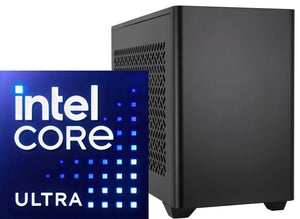List of Top 10 Virtual Event Production Companies

The landscape of events has transformed dramatically, with virtual platforms becoming the backbone of modern corporate gatherings, conferences, and entertainment experiences. Choosing the right virtual event production companies can make or break your event's success, impacting everything from audience engagement to technical execution.
This curated list showcases the leading virtual event production company providers that have proven their expertise in creating memorable, seamless virtual experiences. These companies have demonstrated exceptional capabilities in handling complex technical requirements while delivering engaging content that resonates with audiences worldwide.

1. ARWALL - Leading Virtual Event Production Company
ARWALL stands at the forefront of virtual event production, offering cutting-edge solutions that redefine how events are conceived and executed. Their innovative approach combines advanced LED technology with immersive virtual environments, creating experiences that feel remarkably real and engaging.
Key Services:
-
LED XR Stage installations for hybrid events
-
ARFX Infinite Studio for unlimited virtual backgrounds
-
Real-time virtual production capabilities
-
Custom virtual environment design
-
Multi-camera live streaming solutions
Why ARWALL Excels: ARWALL's proprietary technology enables event organizers to create stunning virtual environments without the limitations of traditional green screen setups. Their LED XR Stage installation service provides clients with professional-grade virtual production capabilities that rival major film studios.
Notable Achievements:
-
Successfully executed over 500 virtual events
-
Serves Fortune 500 companies across multiple industries
-
Recognized for technical innovation in virtual production
-
Consistently rated 4.9/5 by clients for service quality
2. Hopin - Comprehensive Event Platform Solutions
Hopin has established itself as a major player in the virtual events space, offering an all-in-one platform that handles everything from registration to post-event analytics. Their platform supports events of all sizes, from intimate meetings to large-scale conferences.
Key Features:
-
Interactive networking capabilities
-
Multi-track event management
-
Built-in sponsorship tools
-
Real-time engagement analytics
-
Mobile app integration

3. Remo - Interactive Virtual Event Experiences
Remo specializes in creating interactive virtual environments that mimic real-world networking experiences. Their platform is particularly popular for corporate events, trade shows, and educational conferences.
Standout Features:
-
Visual floor plans for natural networking
-
Breakout room functionality
-
Interactive presentation tools
-
Customizable virtual spaces
-
Integration with popular CRM systems
4. Airmeet - Social-First Virtual Events
Airmeet focuses on creating social connections within virtual environments, making it ideal for community-building events and networking conferences. Their platform emphasizes participant interaction and engagement.
Core Capabilities:
-
Speed networking features
-
Social lounge areas
-
Interactive polling and Q&A
-
Multi-format content delivery
-
Community building tools
5. Goldcast - B2B Event Specialization
Goldcast has carved out a niche in B2B virtual events, offering sophisticated features designed specifically for business conferences, product launches, and corporate communications.
Professional Features:
-
Advanced lead generation tools
-
CRM integration capabilities
-
Custom branding options
-
Detailed analytics and reporting
-
Enterprise-grade security

6. BigMarker - Educational Focus Platform
BigMarker specializes in educational and training-focused virtual events, making it a popular choice for webinars, workshops, and certification programs.
Educational Tools:
-
Interactive whiteboards
-
Breakout session management
-
Attendance tracking
-
Certificate generation
-
Content library management
7. Splash - Creative Event Marketing
Splash combines event management with creative marketing tools, helping organizations create visually stunning virtual events that align with their brand identity.
Creative Features:
-
Custom event page design
-
Brand-consistent templates
-
Social media integration
-
Email marketing tools
-
Guest list management

8. Grip - AI-Powered Networking
Grip leverages artificial intelligence to enhance networking opportunities at virtual events, using smart algorithms to connect attendees with similar interests and goals.
AI-Driven Features:
-
Intelligent attendee matching
-
Personalized agenda recommendations
-
Smart scheduling tools
-
Predictive analytics
-
Automated follow-up systems
9. Whova - Community-Centered Events
Whova focuses on building active communities around virtual events, offering tools that encourage participation and ongoing engagement beyond the event itself.
Community Tools:
-
Discussion forums
-
Social walls
-
Attendee directories
-
Photo sharing capabilities
-
Event gamification
10. Zoom Events - Enterprise-Grade Solutions
Zoom Events extends the familiar Zoom platform into full-scale event production, offering enterprise-grade features for large organizations and complex events.
Enterprise Features:
-
Scalable infrastructure
-
Advanced security protocols
-
Integration with Zoom ecosystem
-
Professional broadcasting tools
-
Comprehensive administrative controls

Key Factors to Consider When Choosing Virtual Event Production Companies
Technical Capabilities Evaluate the platform's ability to handle your expected audience size, streaming quality, and integration requirements. The best virtual event production companies should offer robust technical infrastructure that can scale with your needs.
Customization Options Look for providers that offer extensive customization capabilities, allowing you to create branded experiences that align with your organization's identity and event objectives.
Support and Service Consider the level of customer support provided, including pre-event planning assistance, live event support, and post-event analytics and reporting.
Pricing Structure Understand the pricing model, including any setup fees, per-attendee costs, and additional charges for premium features or technical support.
Integration Capabilities Ensure the platform can integrate with your existing marketing, CRM, and analytics tools to provide a seamless experience across your technology stack.
Conclusion
The virtual event production industry continues to evolve rapidly, with new technologies and platforms emerging regularly. The companies listed above represent the current leaders in this space, each offering unique strengths and capabilities suited to different types of events and organizational needs.
When selecting a virtual events production company, consider your specific requirements, budget constraints, and technical capabilities. The right partner will not only provide the necessary technology platform but also offer strategic guidance and support to ensure your virtual event achieves its intended goals.
Success in virtual event production requires more than just technology – it demands creativity, technical expertise, and a deep understanding of audience engagement. The companies featured in this list have demonstrated their ability to deliver exceptional virtual experiences that drive meaningful connections and achieve measurable results.
Frequently Asked Questions
What should I look for in virtual event production companies?
When evaluating virtual event production companies, focus on technical reliability, scalability, customization options, and customer support quality. The platform should handle your expected audience size while offering features that align with your event objectives. Look for companies with proven track records, positive client testimonials, and comprehensive service offerings that include pre-event planning and post-event analytics.
How much do virtual event production services typically cost?
Virtual event production costs vary significantly based on event size, complexity, and required features. Basic platforms may charge $100-500 per event for small gatherings, while enterprise solutions can range from $5,000-50,000+ for large-scale conferences. Many companies offer tiered pricing based on attendee count, with additional costs for premium features, custom branding, and dedicated support services.
What technical requirements do I need for virtual event production?
Most virtual event platforms require stable internet connectivity, modern web browsers, and basic audio/video equipment. For professional productions, you'll need higher-quality cameras, microphones, and lighting equipment. Some platforms may require specific software installations or have minimum bandwidth requirements. Always test your setup before the actual event to ensure optimal performance.
How do I ensure high attendee engagement in virtual events?
Maximize engagement through interactive features like polls, Q&A sessions, breakout rooms, and networking opportunities. Use professional production values with high-quality audio and video, engaging visual content, and varied presentation formats. Encourage participation through gamification, social features, and regular interaction prompts. The most successful virtual events blend informative content with interactive elements that keep attendees actively involved.
Can virtual event platforms integrate with my existing marketing tools?
Most professional virtual event platforms offer integration capabilities with popular marketing automation, CRM, and analytics tools. Common integrations include Salesforce, HubSpot, Mailchimp, and Google Analytics. These integrations enable seamless data flow, automated follow-up communications, and comprehensive event performance tracking. Verify integration capabilities with your specific tools before making a platform selection.
What are the main differences between virtual and hybrid event production?
Virtual events are conducted entirely online, while hybrid events combine in-person and virtual components. Hybrid events require more complex technical setups, including professional streaming equipment, multiple camera angles, and seamless integration between physical and virtual attendee experiences. Virtual events typically offer more cost-effective solutions and broader accessibility, while hybrid events provide networking opportunities for local participants while maintaining global reach.




